2018 Volta a Catalunya Preview
Huge number of contenders, but Movistar look the strongest
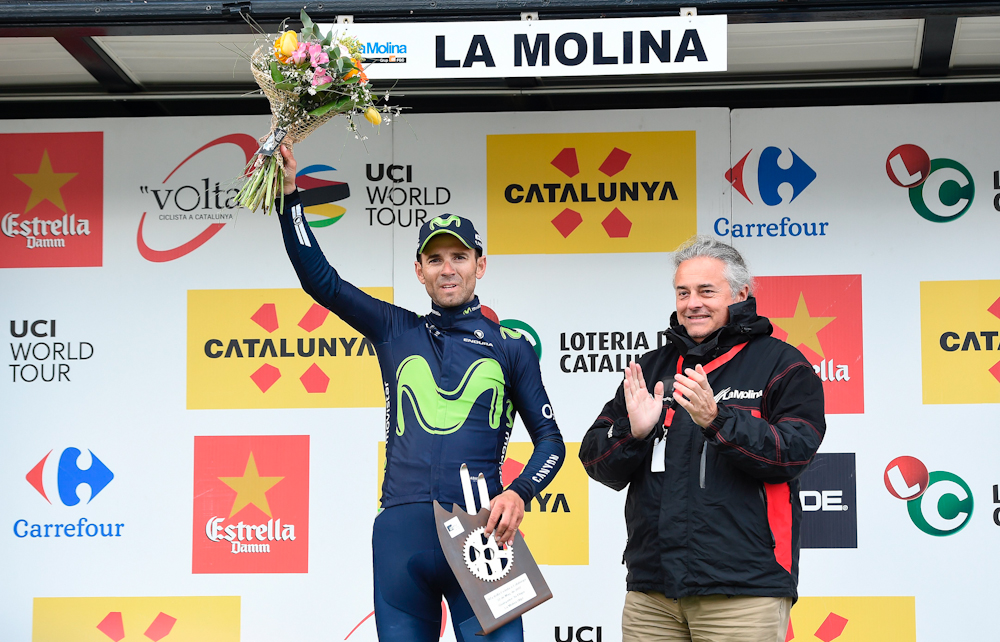
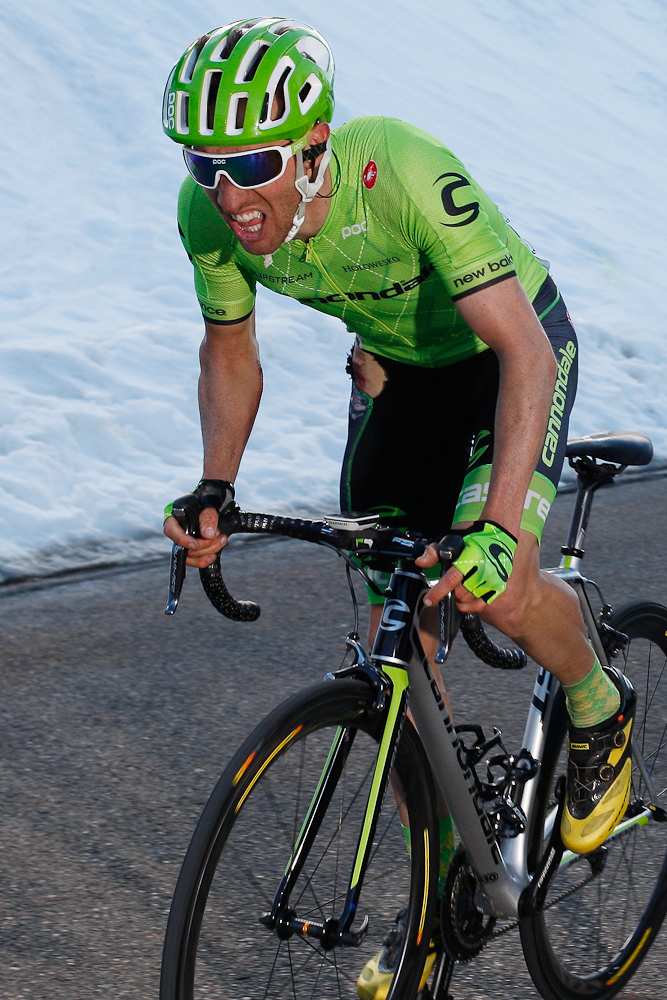
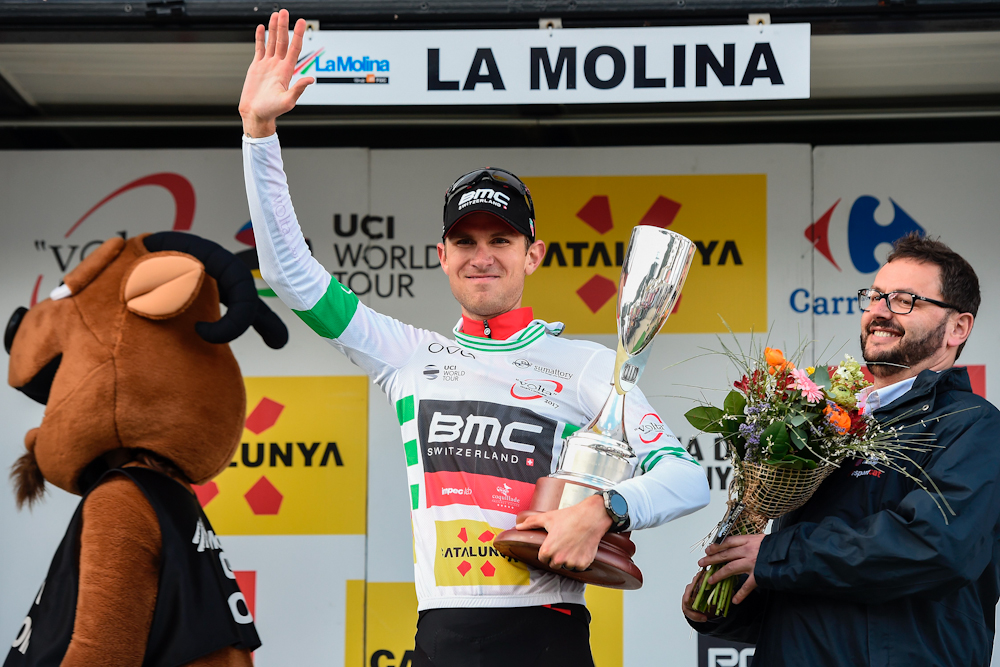
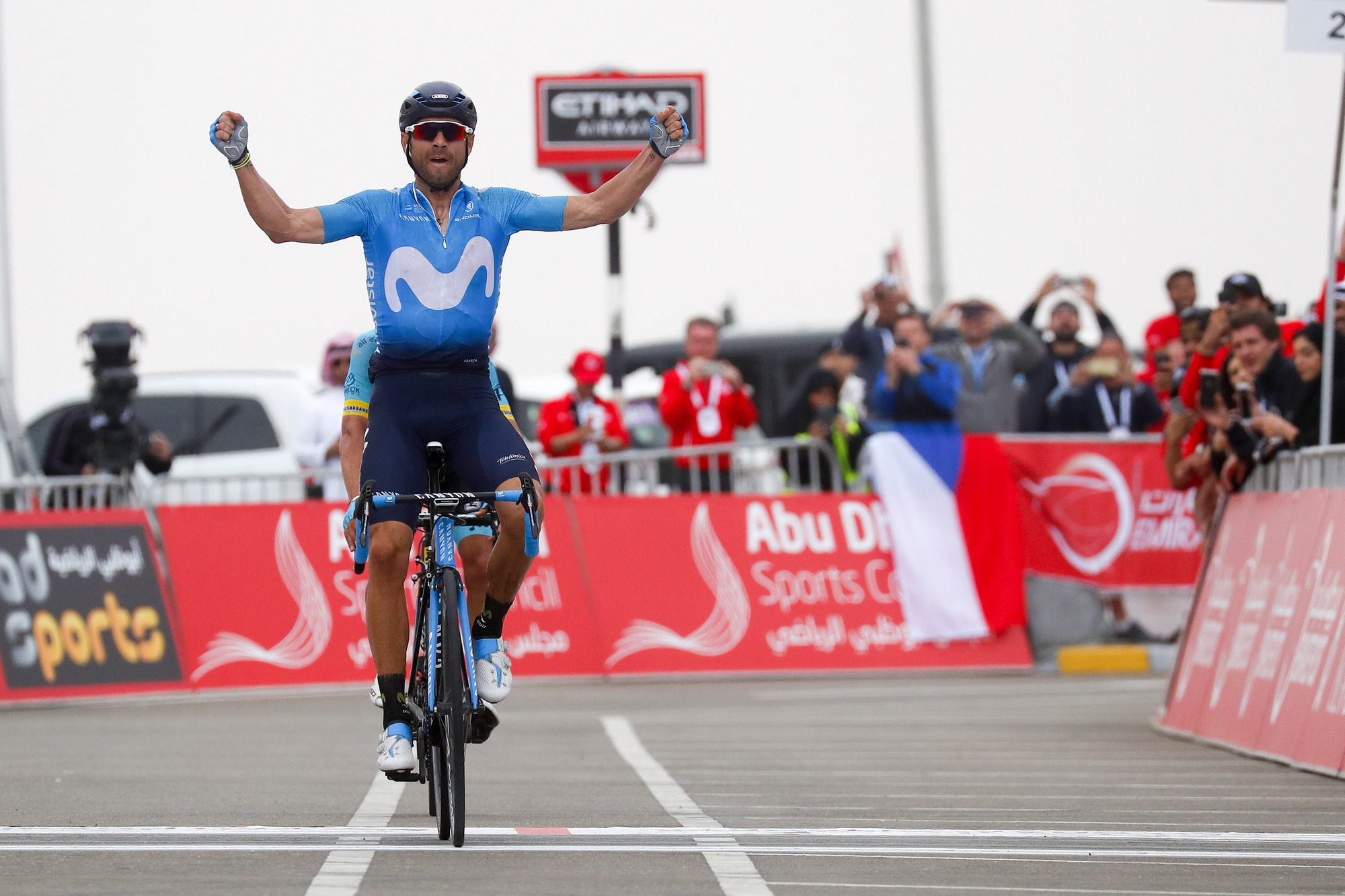
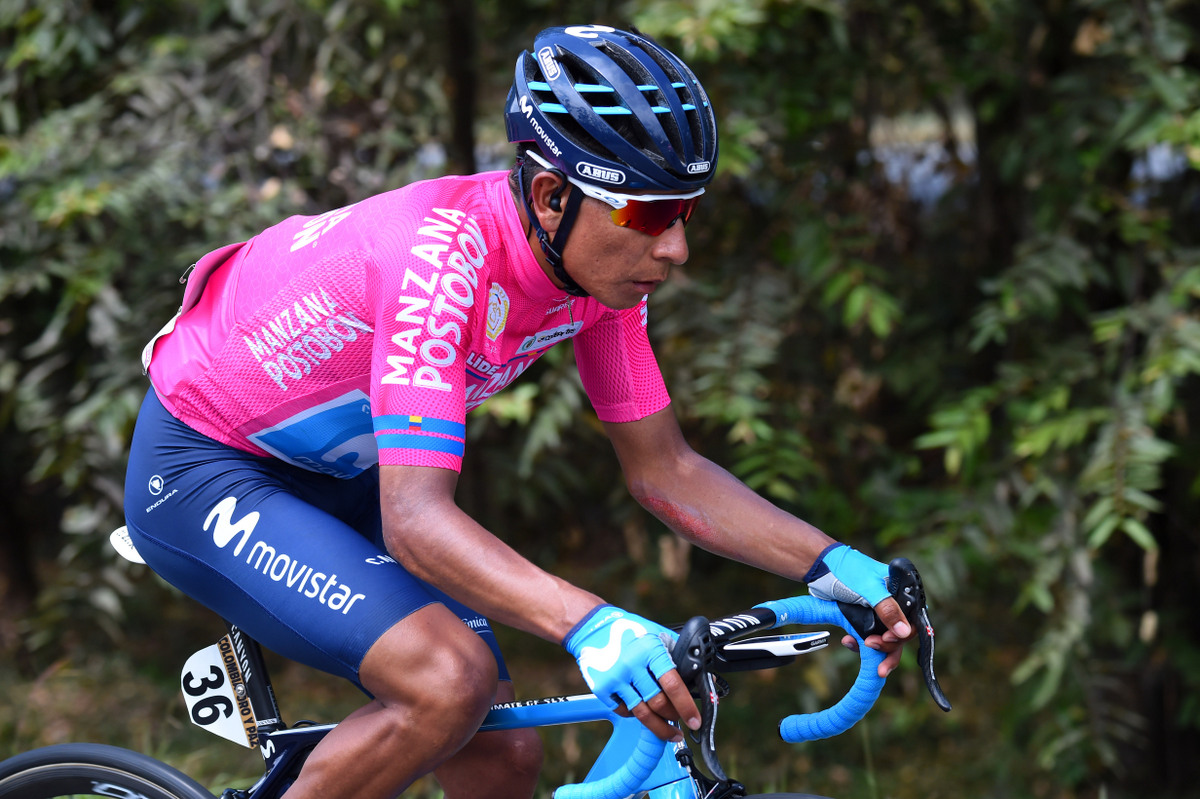
Every year as the Spring Classics campaign shifts into top gear, the Volta a Catalunya serves to remind fans that top-level stage racing is also taking place, and this March is no exception.
For the best part of a decade, in fact, the Volta a Catalunya has served as a star-studded crossroads for a significant number of its Grand Tour specialists. The week-long event has become one of the few points in the season where a hefty number of Tour de France and Giro d'Italia contenders all race together at WorldTour level.
Why is the Volta a Catalunya so popular? As cycling's third oldest stage race, first held on January 6, 1911 (clearly they liked their early-season racing back then), Catalunya is hardly lacking in prestige, and these days it comes with a handy sheaf of WorldTour points, too. It's got some tough Pyrenean stages that allow the big name racers to test their climbing form on 'real' mountain ascents. The Volta's also far enough, time-wise, from both the Giro and the Tour to alter training and race programs should a performance in Catalunya drop too far below the desired level.
Last but not least, there's a snowball effect: given the usual depth of the Volta a Catalunya's GC field, there are plenty of reference points for comparison. The cynical might add that the Volta's large number of top contenders also makes it ideal terrain for those stars wishing to fly under the radar, as it's harder to distinguish between those who tried but failed to make an impact in the Volta and those who are there, as the cliché has it, 'to train with a race number on their backs.'
The contenders
It's no surprise that this year, even in the absence of Chris Froome (Team Sky) for the first time since 2013, as well as Tom Dumoulin (Team Sunweb), Romain Bardet (AG2r La Mondiale), Vincenzo Nibali (Bahrain-Merida) and the now-retired Alberto Contador, there is still an exceptionally long list of potential GC contenders at the Volta a Catalunya.
Michelton-Scott will field all three of their stage racing stars, for example – Simon and Adam Yates, and Esteban Chaves – before they go their separate ways in the Grand Tours. The same goes for EF Education First-Drapac's Michael Woods and Rigoberto Urán, and UAE-Team Emirates' Fabio Aru and Dan Martin.
While Martin's 2013 victory in the Volta a Catalunya lifts the Irishman high in the rollcall of favourites, other potential contenders include Tim Wellens (Lotto-Soudal), LottoNL-Jumbo duo Steven Kruiswijk and Robert Gesink, Tejay van Garderen (BMC Racing Team), Thibaut Pinot (Groupama-FDJ), Louis Meintjes (Team Dimension Data), Warren Barguil (Fortuneo-Samsic) and Sergio Henao (Team Sky). Of the few sprinters taking part, Sam Bennett (Bora-Hansgrohe) is one key name, and Nacer Bouhanni (Cofidis) – already a multiple stage winner in the Volta a Catalunya – is another.
The team that stands head and shoulders above the rest of the favourites, though, is Movistar. Although Mikel Landa is not taking part, its two other leaders, Alejandro Valverde and Nairo Quintana, will be present. Both are former winners of the Volta a Catalunya and they will be ably backed by the most recent winner of Paris-Nice, Marc Soler, who could well act as a Plan C for the Spanish squad.
Of the Movistar trio, Valverde is, on paper, the top favourite. Unlike Quintana, who has raced little this spring, Valverde already has victories in two week-long stage races this season, the Volta a Valencia and the Tour of Abu Dhabi, and he also won an exceptionally difficult Volta a Catalunya last year. Valverde knows the roads of Catalonia like the back of his hand, too, having won in 2009 and 2017, finished second overall in 2015 as well as taking seven stage wins, three of them (Alp-La Molina, Valls and twice in Barcelona's Montjuic Park) in finishes used this year. His first Volta stage podium finish was no less than 16 years ago, when he took second as a first year pro.
Valverde is a past master, too, at snatching the bonus seconds in the uphill or small group sprints that will likely to prove a decisive factor in this year's Volta, given there are, regrettably, no time trials. Finally, of the 2018 Volta a Catalunya's two key mountain days, the summit finishes at Valter 2000 on stage 3 and Alp-La Molina on stage 4, Valverde has emerged as the leader from both of them in the past: in Valter 2000 in 2013 and at Alp-La Molina in 2017, when he also won the stage and went on to win the race outright.
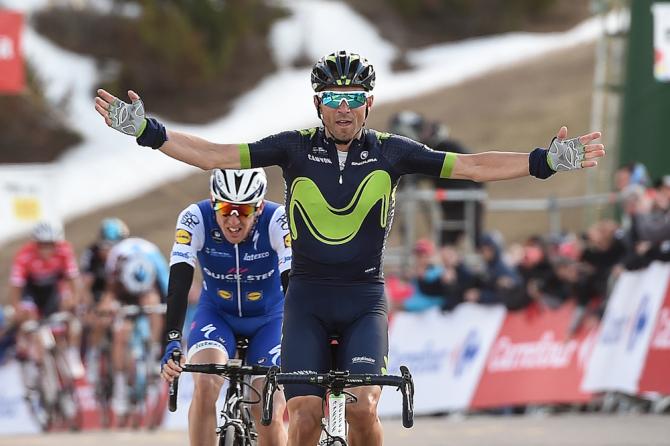
A paradoxical route
History is on Valverde's side, then, but only up to a point, given how often the Volta a Catalunya has visited most of this year's finishes in recent years. The winner at Valter 2000 in 2013 was none other than Nairo Quintana, for example, while Valverde subsequently crashed out as race leader the following day with Martin going on to win. On the last visit to Valter 2000 in 2014, Tejay van Garderen was first across the line.
The time differences at the summit of the crucial 12-kilometre Pyrenean climb tend to be very small. In 2013, when Quintana won, there were only nine seconds between the top nine. In the 2014 Volta a Catalunya, following the Valter 2000 finish, there were still eight riders within 26 seconds on GC.
This reveals an underlying, long-term problem in many recent Volta a Catalunya routes – for all there is a hefty amount of 'invisible' climbing over the week, there tends to be a glaring lack of obvious opportunities for a major GC battle.
Last year's route, with a team time trial and a major summit finish at Lo Port in southern Catalunya was the exception that proved the rule. This time round, it's more business as usual. Only the Valter 2000 stage looks hard enough to break open the race. The three first category climbs on tough, narrow roads that precede it will certainly wear down the peloton and we could see a top rider try to set the cat among the pigeons with a long-distance attack. (Marc Soler, winner of Paris-Nice last week, certainly has recent form in this area.)
But the truth is that, illness or accidents notwithstanding, past Voltas a Catalunya have almost invariably shown that whoever is leading after the race's first mountain top finish (in this case Valter 2000) is a near certainty for overall victory at the finish in Barcelona.
Overall, the 2018 route, in fact, is sadly all too predictable. For all there is a lot of climbing, it offers too few occasions for an open, aggressively-fought race. Certainly, barring stage 3, the chances of an ambush are minimal. The opening circuit stage in Calella has been used for the last six years, Valls on stage two has been a finish for five of the last six, Barcelona's Montjuic Park on stage seven since time immemorial. Only stage five's rugged finale in Vielha (which comes complete with a long, late section in a 5km-long tunnel to get over an unranked mountain pass) looks somewhat different to the Volta's usual ingredients, although the classified climbs are all, disappointingly, early on.
There is certainly enough strength in depth for an edition as dramatic as 2017's battle between Valverde and the rest of the field. But for now, the one really uncertain factor, in all of this, is the weather. At the moment, snow is forecast for parts of the Pyrenees in the middle of next week, and that could make even the easiest or most predictable of routes a real challenge. Watch this space – and the sky.
The latest race content, interviews, features, reviews and expert buying guides, direct to your inbox!
Alasdair Fotheringham has been reporting on cycling since 1991. He has covered every Tour de France since 1992 bar one, as well as numerous other bike races of all shapes and sizes, ranging from the Olympic Games in 2008 to the now sadly defunct Subida a Urkiola hill climb in Spain. As well as working for Cyclingnews, he has also written for The Independent, The Guardian, ProCycling, The Express and Reuters.
Latest on Cyclingnews
-
Amazon Prime Day bike deals: The sale is almost finished, this is your last chance to grab yourself a deal
Don't hang around, Amazon Prime Day is coming to an end but there are still some great deals available -
Where's the beef? The UAE-Visma Tour de France rivalry is intense but respectful so far
"UAE and Visma are perhaps the strongest teams but only one can win," says Mauro Gianetti -
'I wonder how they recover like that every day' – Mathieu van der Poel loses yellow jersey at Tour de France as Grand Tour fatigue sets in
Dutchman more than satisfied with performance in first seven stages despite getting dropped on return to Mûr-de-Bretagne -
'I don't know if I'm getting any closer to that win' – Oscar Onley best of the rest behind Pogačar and Vingegaard on Tour de France stage 7
World champion says young Scot has 'showed in the past already how a superb rider he is, with a punchy kick' after third place at Mûr-de-Bretagne




